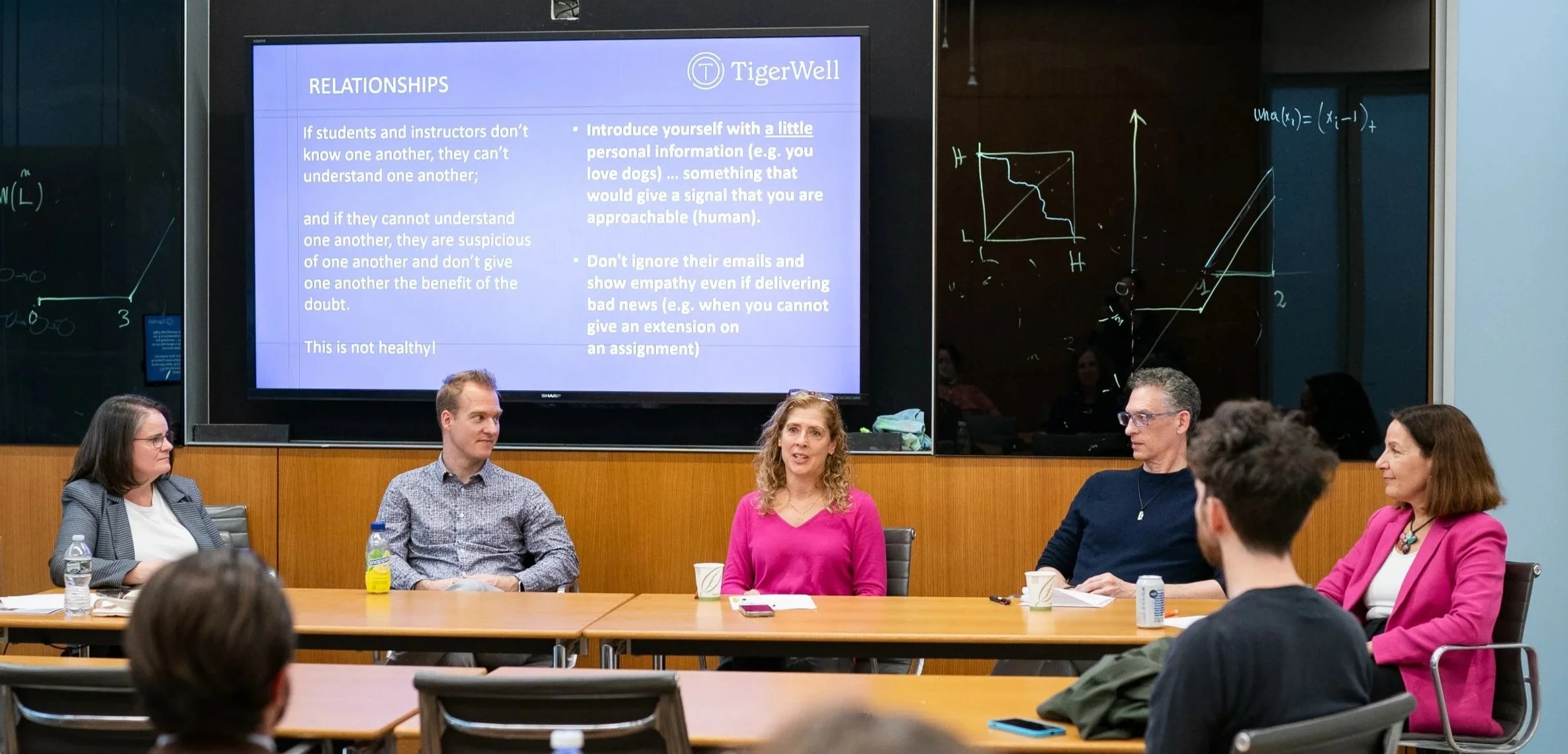Well-Being in Learning Spaces
Public health and health promotion principles have been widely applied to communities, including the spaces students live in, the activities they engage in, and the policies developed to support them. However, these same principles have been less frequently applied to learning spaces, such as classrooms, labs, and mentoring experiences. We see these academic places and spaces as excellent opportunities to partner with faculty, preceptors, and academic administrators to examine whether evidence-based health promotion principles function as effectively in curricular environments.
TigerWell leads this cross-campus collaboration to promote conditions for student well-being in classrooms and other learning environments. We aim to support faculty and other instructors in implementing small changes to educational practices (pedagogy, advising, mentoring, etc.) that can have a profound impact on students’ well-being and mental health. We have compiled this guidance in a Princeton-specific toolkit for faculty and other instructors.
This project draws significantly from successful initiatives at other universities, including Simon Fraser University & University of Texas at Austin.
Our Partners
Members of the Faculty
Undergraduate & Graduate students (Student consultants through the McGraw Center; Undergraduate Student Government; Graduate Student Government)


